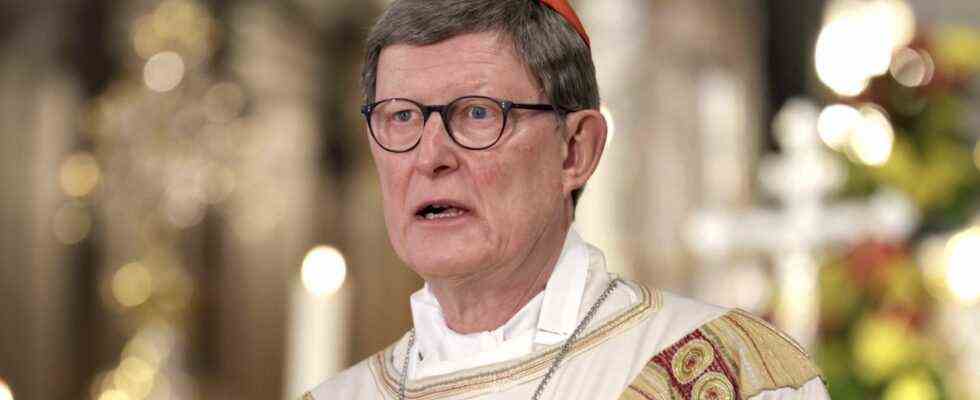It’s eight minutes on foot, it goes over the spacious Domplatz, up the stairs, along the Pauluspromenade. Several times a day, many men in black make a pilgrimage on this almost 450 meters back and forth between the Fulda City Palace, where the German Catholic bishops meet for their autumn plenary assembly, and the seminary, where they eat and sleep. Some bishops go alone, others in groups. Cologne’s Archbishop Cardinal Rainer Maria Woelki is also there, hardly to be overlooked with a height of 1.92 meters.
It is important to mention this, because in the meantime the press spokesman for the Bishops’ Conference has to publicly deny rumors of Woelki’s departure. Previously, the sudden and very unusual arrival of the Cologne press spokesman had sparked speculation. The decision of Pope Francis on the future of Cardinal Woelki, because of the unsuccessful processing of abuse in the Archdiocese for months in crisis mode, is still pending. The nervousness is great.
But there is no news from Rome, Woelki is there all the time. And he doesn’t seem insecure, on the contrary. On the fourth and last day of the autumn assembly, he celebrates the Eucharist in the morning. Woelki preaches about Jesus’ encounter with the Roman governor Herod, who heard all kinds of rumors about Jesus and wanted to see him “only out of sensationalism” before his crucifixion. At all times there have been a lot of rumors and speculations, says Woelki: “Mostly nothing was right, at best a little.” And he continues, those who are only interested in “sensationalism” remain blind to the work of God, who wants to change all people for the better and to lead them to fellowship with God.
Hamburg’s Archbishop Stefan Heße is allowed to remain in the community of confreres. Pope Francis did not accept the resignation of the former Cologne personnel manager, who was burdened in the abuse report – he did not deliberately cover up that the system was to blame, and he also admitted his mistake “humbly”, according to the Pope. The bishops have now re-elected him chairman of the migration commission, and on Saturday he will celebrate his first public service after taking a break in front of the St. Mary’s Cathedral in Hamburg. Life goes on.
Not so for many of those affected by abuse who are still heavily burdened today. The procedure for paying recognition benefits by the Independent Commission (UKA) is currently causing a lot of criticism. For weeks, those affected have been drawing attention to the fact that the procedure is inadequate – that it is taking too long, that the criteria are not transparent, that those affected end up getting far too little money. The Bishops’ Conference’s Advisory Board for Affected Bishops even wrote in a letter to retraumatisation and even new visits to psychiatry.
The bishops had dealt with the points of criticism in detail, said Bishops Conference Chairman Georg Bätzing at the press conference on Thursday: “We see that expectations are disappointed and that this is painful. We regret that very much.” In October there will now be a discussion between the independently working UKA, representatives of the Advisory Council for Affected Persons, the DBK and the Conference of the German Ordensobernkonferenz (DOK). Basically, they want to stick to the system, which is based on court judgments comparable in Germany. The UKA was told that the level of benefits should be based on the “upper range” of the compensation table.
The filing was always sloppy. This should be over now
Jens Windel from the Hildesheim Affected Initiative is not enough, he calls for the previous recognition process to be stopped immediately: “If they say they are going to fix the screws – then we will have a result at the spring general assembly at the earliest in six months,” says Windel, whose initiative has set up an information stand across from the city palace. “That means: six months of further retraumatisation, six months more suffering.” Bätzing does not want to stop the process: “Otherwise all the applications that have already been received would remain lying around.” Instead, it should be examined how things could be changed that lead to “new injuries” in the proceedings, said Bätzing.
In the fight against sexual abuse, the bishops have also decided to improve the management of personal files. Past abuse studies have shown how incomplete and poor personnel files have been in recent years. A basic order is to come into force on January 1st, which makes strict requirements for filing in every diocese. This is based on civil service law. So that there are no more secret cabinets in the future.

